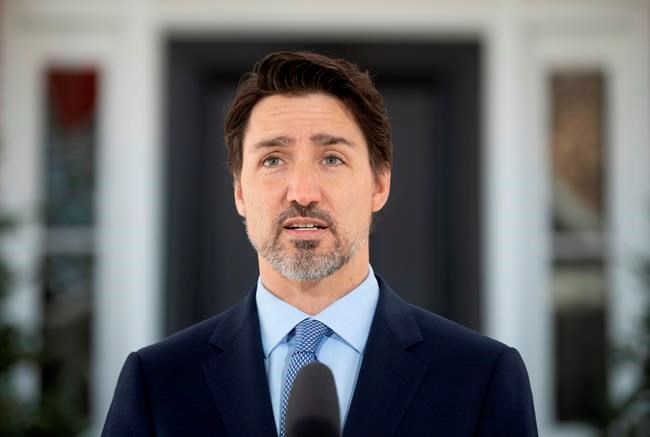A new financial-assistance package for Canadians losing income because of COVID-19 doesn’t address the needs of those who will suffer most from the financial fallout, says an anti-poverty advocate.
The changes announced Wednesday will help Canadians who wouldn’t normally qualify for employment insurance, such as contract workers and people who are self-employed.
But it’s low-wage workers living paycheque to paycheque who lose their jobs and would normally qualify for EI who will be struggling to pay rent in a couple of weeks, said Isabelle Dehler-Hyde, an employment specialist at Together Against Poverty Society.
Changes have already been made to waive the mandatory one-week period before applicants are eligible for employment-insurance benefits for people who are sick or in quarantine, but that doesn’t apply for people who have simply lost their jobs or can’t work while they’re self-isolating.
“All these folks who are getting laid off suddenly have to make up for losing a week’s worth of wages and then are going to go on EI benefits that are almost half as much as their regular wage. So it’s a huge financial hit.”
Prime Minister Justin Trudeau announced on Wednesday $82 billion in financial assistance aimed at helping Canadians pay their rent or mortgage and buy groceries during the COVID-19 pandemic. An estimated $55 billion is in the form of deferred tax payments, leaving $27 billion in direct spending to individuals and businesses.
“I don’t want to discount the changes that have come because they’re really great, making sure all these folks that wouldn’t have been eligible are going to receive benefits,” Dehler-Hyde said.
But she wants to see more assistance for those at the lower end of the income spectrum who are worried about keeping a roof over their heads and meeting their basic needs.
Together Against Poverty Society has called for a temporary halt on evictions while the country copes with the threat of COVID-19.
Emily Rogers, the society’s tenant advocate, said ensuring people can stay in their homes is important not only for individuals but for public health, as many people need to self-isolate at home.
“This is sound public policy from both an economic justice and public-health perspective,” she said. “The government must immediately reassure thousands of British Columbians who are losing their income that they will not also be losing their home.”
Trudeau’s announcement touched on mortgage-payment deferrals for Canadians experiencing financial difficulty as a result of the virus, but didn’t impose a moratorium on evictions for renters.
The federal financial-aid package will beef up Canada Child Benefit payments for families and GST tax credits for low- and middle-income earners, provide a wage subsidy for small businesses to help them keep staff on the payroll during the slowdown, pause Canada Student Loan payments for six months and provide emergency benefits for people who don’t qualify for employment insurance.
Accessing the assistance is another challenge.
One Victoria resident, who did not want her name used, lost her job Monday at a company that sells tickets to events, which have all been cancelled due to the pandemic.
She has been trying to reach someone at the employment-insurance office, but on the phone she has met with an automated message that says the lines are overwhelmed.
“Every time you call EI, they’re full to the point where the automated message now says: ‘We can’t answer your question today. Try tomorrow,’ ” she said.
She went to an office in Victoria on Wednesday, but when she arrived at 10:30 a.m., she was already too late: The line of people waiting had reached the office’s capacity for the day, and she was told they wouldn’t be able to answer her questions.
“I’m very overwhelmed. I’m stressing out a lot about how I’m going to pay rent, like what if this thing takes so long that I don’t get to pay rent,” she said. “I’m super-paranoid of being homeless.”
regan[email protected]
— With a file from The Canadian Press
EI phone numbers
For people accessing EI who are sick with COVID-19 or in quarantine: 1-833-381-2725. For all others: 1-800-206-7218.



